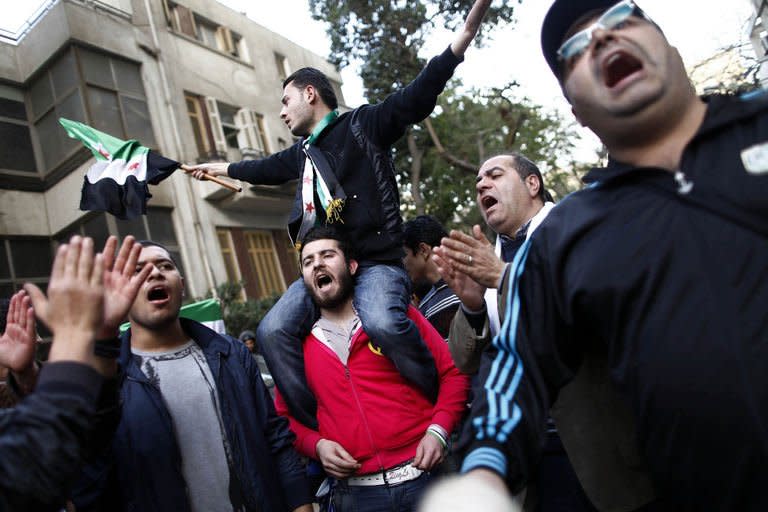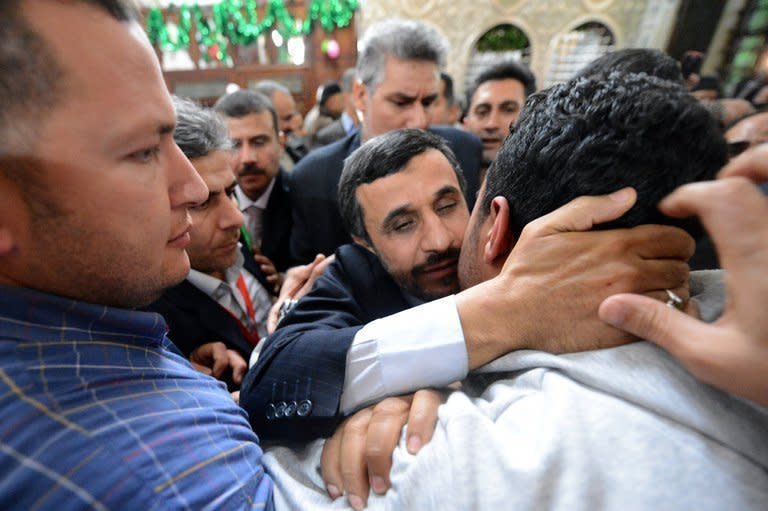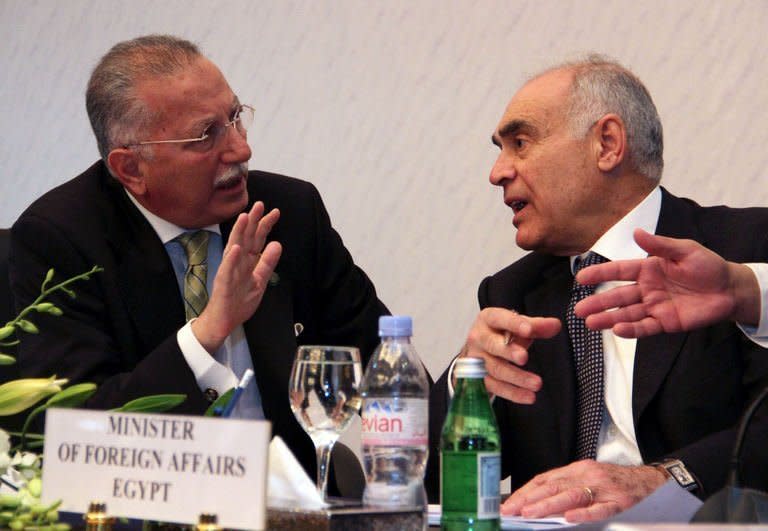Egypt's Morsi urges Syria unity at Islamic summit
Egyptian President Mohamed Morsi on Wednesday urged Syrian opposition groups to unify, as he addressed leaders of Islamic states at a summit that also focused on the battle against militants in Mali. "The Syrian regime must draw lessons from history: it is the people who remain. Those who put their personal interests above the interests of their people will end up leaving," Morsi told heads of state and representatives of the Organisation of Islamic Cooperation in Cairo. Among them was Mahmoud Ahmadinejad, in the first visit to Egypt by an Iranian president since Iran's 1979 Islamic revolution. Iran is the chief regional backer of Syrian President Bashar al-Assad, while Egypt and Gulf powerhouse Saudi Arabia bitterly oppose Assad and support rebels seeking his ouster. Morsi called on opposition parties not allied to Syria's National Coalition, which is recognised by the international community, "to coordinate with this coalition and support their efforts for a unified approach... for democracy." The meeting gathers leaders of 26 of the OIC's 57 states, with Morsi, Egypt's first Islamist president, assuming the organisation's rotating presidency. Though Syria is not represented at the conference, much of the debate was expected to focus on the conflict which the UN says has killed more than 60,000 people in less than two years. According to a draft resolution obtained by AFP, the gathering will call for "serious dialogue" between the Syrian opposition and government officials "not directly involved in oppression." The call for dialogue, drafted by foreign ministers after two days of preparatory meetings, will pile pressure on Assad to respond to a surprise offer of talks by Ahmed Moaz al-Khatib, leader of the National Coalition. The document stresses the need to maintain "Syria's territorial integrity and sovereignty," while underlining that "the main responsibility for the continued violence falls on the Syrian government." The Syrian regime is committing "odious crimes... over which we cannot be silent," said Saudi Crown Prince Salman bin Abdul Aziz. He urged the summit to support "a transfer of power" in Syria, adding that "the support by certain (states) of the Syrian regime is not helping resolve the situation," in apparent reference to Iran. Egypt, Iran and Turkey also held talks on Syria on the sidelines of the summit. "The process is going to continue until a conclusion is reached," Iranian Foreign Minister Ali Akbar Salehi told AFP after the meeting, as a member of his delegation said there was "supposed to be another meeting" on Thursday. Egyptian presidential spokesman Yasser Ali said the meeting was aimed at finding a solution that would "satisfy the Syrian people." "We want to stress to the Iranian leadership that their interests in the Arab world are tied to supporting the Syria people to end the bloodshed," he told reporters. An Iranian official said on condition of anonymity that Tehran hoped Syria's opposition would "soften its stance" on talks with the regime. The summit will also discuss the conflict in Mali, where French forces intervened on January 11 to help the army halt an Islamist advance on the capital Bamako. The leaders will also discuss Israeli settlements on occupied Palestinian territory. The questions of Islamophobia, Muslim minorities and economic cooperation in the Islamic world are also on the agenda. Sectarian tensions between Sunni and Shiite Muslims were highlighted on Tuesday during Ahmadinejad's visit to Al-Azhar, Sunni Islam's highest seat of learning. Senior Al-Azhar clerics launched into a tirade against "some Shiites" for insulting some of the Prophet Mohammed's companions as the Iranian president listened uneasily. Ahmadinejad was also targeted by a shoe-throwing protester as he left a Cairo mosque. Four people were detained over the incident, a security official said.






